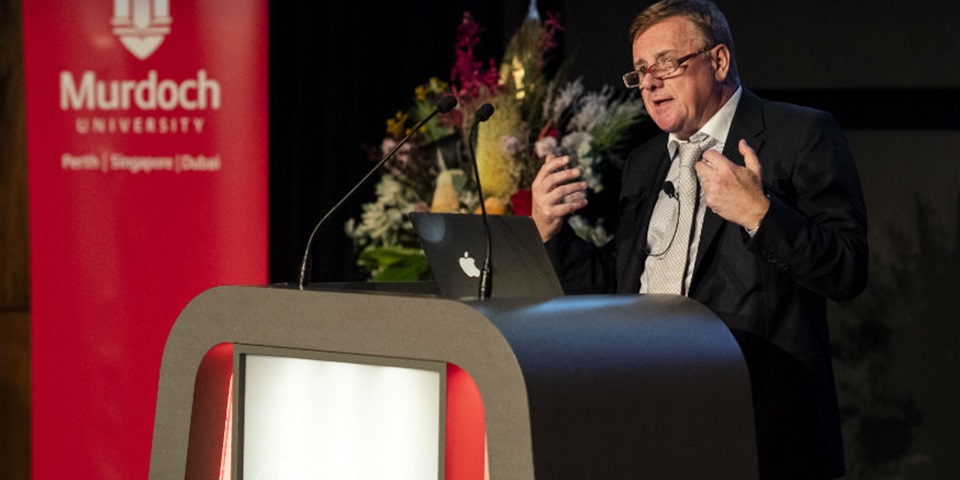News
The power of phenomics to transform health

The astounding ways phenomics can power the future of precision medicine were laid out for a packed audience at the Sir Walter Murdoch Lecture at Murdoch University on 7 November.
Murdoch’s newly-appointed Pro Vice Chancellor Health Sciences Jeremy Nicholson (pictured), delivered the public lecture and explained how phenomics – the study of gene-environment interactions – could help us live longer and healthier lives.
Professor Nicholson is also the Executive Director of the recently announced Australian National Phenome Centre (ANPC). He explained his vision for how this Murdoch-led initiative will help with the prevention, diagnosis and treatment of diseases like cancer and diabetes in individuals and populations around the world.
“Phenomics is the big thing for 21st Century medicine,” Professor Nicholson said.
“We all want to live long and healthy lives, and the aim for researchers and medical professionals is to help people not just live until 100, but to be healthy throughout this time.
“In order to do this, we need to intervene early to know what is coming and phenomics can help us to achieve this. In the future, precision medicine will start at birth.”
Public health issues
Professor Nicholson outlined how phenomics can help doctors diagnose diabetes more precisely, so the right drug and treatment can be applied sooner.
He also explained how phenomics could help inform the fight against current and future public health issues like antibiotic resistance, obesity and an increase in tropical diseases in developed countries as a result of climate change.
Formally the founding Director of the MRC-NIHR National Phenome Centre at Imperial College London, Professor Nicholson described how this centre was originally developed as a drug testing unit for the 2012 London Olympics but went onto service large scale population studies.
A number of advances were made at the Centre, including the development of the iKnife, a surgical tool which gives surgeons real time information about their patients as they operate on them. Data visualisation tools, which enable patients and doctors to study and interpret health conditions in a more engaging way were also presented.
Professor Nicholson said the ANPC, which is proposed to be developed on the Fiona Stanley Hospital campus, would be “bigger and better” than the centre at Imperial College, and would be among the most advanced laboratories in the world.
Every year, Murdoch University invites a person of international or national standing to deliver the Sir Walter Murdoch Lecture on a topical issue of interest.
Guests at the lecture included Murdoch Vice Chancellor Eeva Leinonen, Deputy Chancellor Ross Holt, members of Sir Walter Murdoch’s family and representatives from many of the organisations which are collaborating with Murdoch on the ANPC.
News
The power of phenomics to transform health
Posted on
Topics